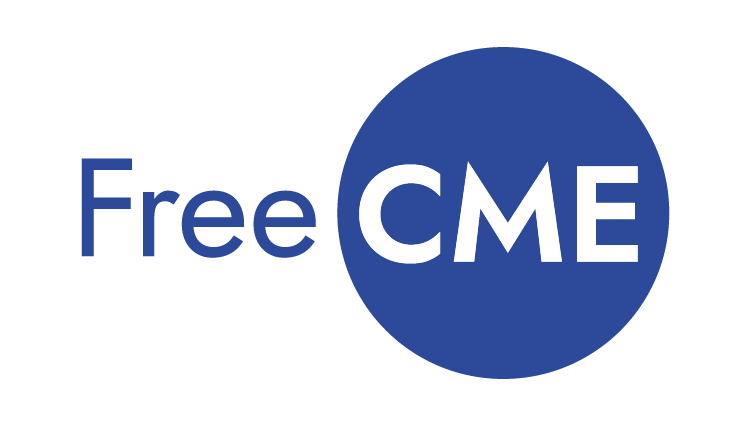
What Will It Take to Overcome Treatment Inertia in Reaching LDL-C Goals? Exploring Opportunities with Emerging PCSK9 Inhibitors to Reduce ASCVD Risk
Released On
April 25, 2025
Expires On
April 25, 2026
Media Type
Internet
Completion Time
75 minutes
Specialty
Cardiology, Family/General Practice , Geriatric Medicine, Internal Medicine, Hospitalist, Primary Care
Topics
Cardiovascular Disease, Geriatric Medicine, Heart Disease
Provided by the Academy for Continued Healthcare Learning (ACHL).
This activity is supported by an educational grant from Merck & Co., Inc.
Credit Available
- Physicians - maximum of 1.25 AMA PRA Category 1 Credit™
All other healthcare professionals completing this course will be issued a statement of participation.
Target Audience
This educational activity is designed for cardiologists, PCPs, internists, family medicine physicians, NP/PAs, and other members of the multidisciplinary team managing cardiovascular issues.
Program Overview
Atherosclerotic cardiovascular disease (ASCVD) is a common condition that is treated with lipid-lowering agents, and guidelines recommend individualized pharmacotherapy plans determined by the patient’s risk for ASCVD. While statins are recommended as the first-line treatment for lowering low-density lipoprotein cholesterol (LDL-C) levels, PCSK9 inhibitors are recommended in high- and very high-risk patients who are on maximally tolerated statin therapies. Yet despite this guidance, therapeutic inertia persists leading to poorly controlled LDL-C levels and greater cardiovascular risk.
While PCSK9 inhibitors have proven efficacy, safety, and tolerability, clinicians report concern about the expense of these medications and patients can be hesitant to consider due to the self-administration component. Emerging PCSK9s inhibitors look to overcome some of these barriers and clinicians must be ready to optimally adopt these therapies in patients with persistently high LDL-C levels per guideline recommendations.
This digital FAQ supports clinicians in mitigating these barriers by translating the latest evidence into easy-to-adopt strategies for routine clinical practice. Find answers to the questions of greatest relevance to you while bypassing areas of already established knowledge.
Learning Objectives
Upon completion of this activity, learners will be able to:
- Discuss safety and efficacy data for emerging PCSK9 inhibitors
- Identify patients who may be appropriate candidates for PCSK9 inhibitors based on expert consensus and evidence-based guidelines
- Employ protocols and patient education strategies to facilitate easier access, support therapy adherence, and improve patient satisfaction
Faculty

Robert Giugliano, MD, SM, FACC, FAHA
Professor of Medicine
Harvard Medical School
Senior Investigator, TIMI Study Group
Cardiovascular Division
Brigham and Women’s Hospital
Boston, MA
Accreditation Statement

The Academy for Continued Healthcare Learning is accredited by the Accreditation Council for Continuing Medical Education (ACCME) to provide continuing medical education for physicians.
Credit Designation
The Academy for Continued Healthcare Learning designates this enduring material for a maximum of 1.25 AMA PRA Category 1 Credit(s)™. Physicians should claim only the credit commensurate with the extent of their participation in the activity.
Physician assistants, nurse practitioners, and nurses may participate in this educational activity and earn a certificate of completion as AAPA, AANP, and ANCC accept AMA PRA Category 1 Credits™ through their reciprocity agreements.
Disclosures of Conflicts Of Interest
The Academy for Continued Healthcare Learning (ACHL) requires that the faculty participating in an accredited continuing education activity disclose all affiliations or other financial relationships within 24 months (1) with the manufacturers of any commercial product(s) and/or provider(s) of commercial services discussed in an educational presentation and (2) with all ineligible companies. All relevant financial relationships have been mitigated prior to this activity.
The following financial relationships have been provided:
Robert Giugliano, MD
Grants/Research Support: Amgen, Anthos Therapeutics, Daiichi Sankyo, Ionis Pharmaceuticals
Consultant: Amgen, Astra Zeneca, Beckman Coulter, Daiichi Sankyo, Gilead, Inventiva, Medpace, Novartis, Perosphere, Samsung, Syneos Health
Honoraria: Amgen, CADECI, Centrix, Daiichi Sankyo, Dr. Reddy’s Laboratories, Menarini
Staff and Reviewer Disclosures: ACHL staff members and others involved with the planning, development, and review of the content for this activity have no relevant affiliations or financial relationships to disclose.
Instructions for Participation and Credit
This activity will take approximately 75 minutes to complete. To receive credit, learners are required to complete the pretest, view the online activity, and complete the posttest and evaluation. To receive credit, 66% must be achieved on the posttest. A certificate will be immediately available. There is no fee to participate in the activity or for the generation of the certificate.
Course Viewing Requirements
Supported Browsers
Internet Explorer 8.0+ for Windows 2003, Vista, XP, Windows 7, Windows 8.1 and above
Google Chrome 28.0+ for Windows, Mac OS, or Linux
Mozilla Firefox 23.0+ for Windows, Mac OS, or Linux
Safari 6.0+ for Mac OSX 10.7 and above
Supported Phones & Tablets
Android 4.0.3 and above
iPhone/iPad with iOS 6.1 or above
Disclaimer
The content for this activity was developed independently of any ineligible company. All materials are included with permission. The opinions expressed are those of the faculty and are not to be construed as those of the publisher or grantor(s).
This educational activity was planned and produced in accordance with the ACCME Standards for Integrity and Independence in Accredited Continuing Education. Recommendations involving clinical medicine in a continuing medical education (CME/CE) activity must be based on evidence that is accepted within the profession of medicine as adequate justification for their indications and contraindications in the care of patients. All scientific research referred to, reported, or used in CME/CE in support or justification of a patient care recommendation must conform to the generally accepted standards of experimental design, data collection, and analysis.
This CME/CE activity might describe the off-label, investigational, or experimental use of medications and/or devices that may exceed their FDA-approved labeling. Physicians should consult the current manufacturers’ prescribing information for these products. ACHL requires the speaker to disclose that a product is not labeled for the use under discussion.
Discussion of scientific information on unapproved uses (SIUU), off-label, investigational, or experimental drug/device use: Investigational PCSK9 inhibitors, including lerodalcibep and enlicitide.
Contact Information
For questions, please contact Karen Catino at [email protected]
